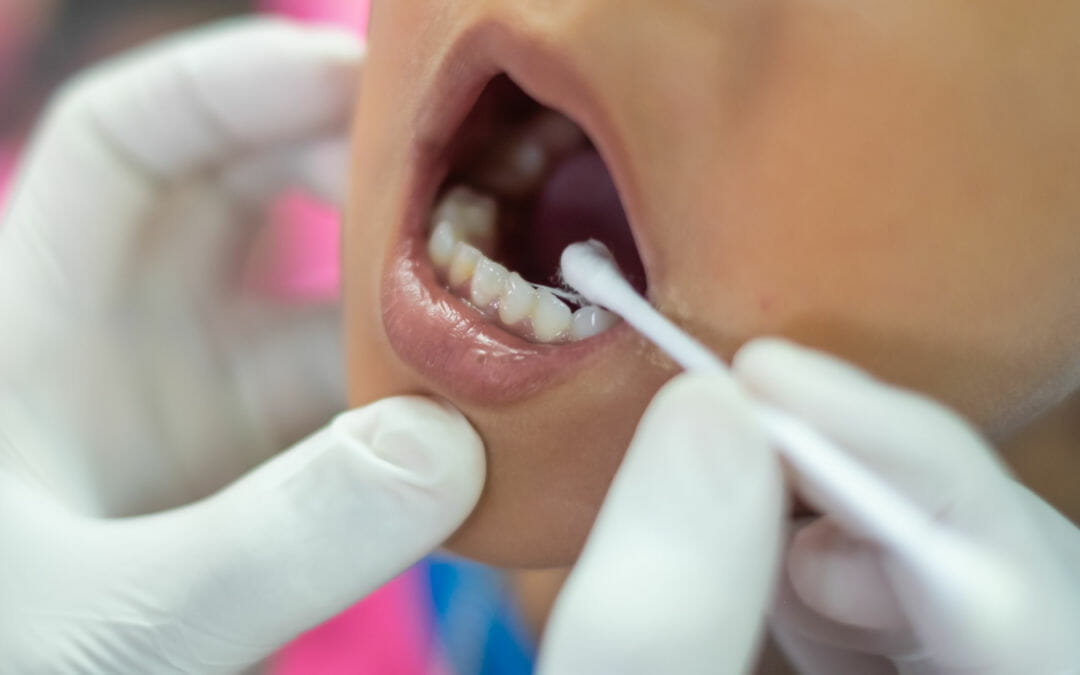Fluoride treatments are often associated with children’s dentistry. While it’s true that most children can benefit from an extra dose of this naturally occurring mineral, so can adults. You’ll get most of the fluoride you need from your diet, water that’s been enriched with it, and products like toothpaste and mouthwash that have it added.
But if you’re at extra risk for tooth decay due to a number of factors, you may also want to get fluoride treatments from your dentist. Find out how this simple, safe, and effective treatment can help you in multiple ways.
1. Counteracting the Effects of Dry Mouth
Adults are much more prone than children to develop a dry mouth. Snoring at night is perhaps the most common cause, but many medications also contribute to the problem. Salivary glands also become less productive as you get older. Even just basic dehydration may lead to a lack of saliva. When the mouth is drier than normal for hours at a time, bacteria can rapidly reproduce. The teeth also miss out on the constant remineralization that occurs when they’re bathed with your salvia.
While you should aim to treat the root cause of your dry mouth and try to restore normal saliva flow for good health, a fluoride treatment or two can prevent damage to your teeth in the meantime. Fluoride directly applied to the teeth can make up for the interruption to the natural remineralization process. This reduces the chances of decay and cavities from dry mouth regardless of the cause.
2. Leveling Out Your Fluoride Exposure
Some adults today are concerned about their exposure to fluoride. Fluoride is a safe compound to consume and is actually required by your body for good health. However, it is true that very high doses can still cause issues. If you don’t drink water with fluoride added or you avoid the use of toothpaste that contains it, you should consider professional fluoride treatment.
This ensures you’re getting a very precise and measured dose from a trained dentist that can assure you of its safety. One-time exposure can boost your dental health while allowing you to feel better about not ingesting fluoride on a daily basis.
3. Protecting Important Dental Work
There are so many dental restoration options available today to restore damaged or missing teeth. Crowns, veneers, caps, dental implants, fillings, and root canals all help maintain your smile. But what are you doing to maintain these restorations in return? Fluoride treatments are a great way to potentially reduce the risk of tooth decay and bacterial growth where dental work meets the natural tooth surface. Even in a complete restoration like a dental implant, decay is possible where the implant rests against the surrounding teeth.
Adding some fluoride to your teeth with a targeted treatment is often recommended by dentists to help reduce the chances of complications following dental work. Even basic fillings that are on the larger side may benefit from a follow-up of fluoride treatments. If the decay continues or restarts after the restoration is in place, it will most likely need to be removed and redone after the decay is treated. Preventing bacteria from moving in after treatment is a much better plan of action.
4. Boosting Your Oral Hygiene Efforts
Forgetting to floss or brush now and then may not seem like such a big deal when you’re an adult. But it all adds up, leading to tooth decay and the potential for gum disease. Routine fluoride treatments go a long way in helping reduce the effects of the occasionally interrupted oral hygiene routine. By strengthening the enamel of the teeth with a necessary mineral, you’re helping prevent cavities and decay caused by bacteria that linger in the mouth. Of course, you should also do your best to try and cut down on those forgotten flossing habits, since fluoride treatment alone can’t protect your teeth from decay. It’s just a good backup to reduce worry when you wake up and realize you’ve skipped a day’s normal routine.
5. Saving Money in the Long Run
Doing any kind of preventative treatment such as fluoride will help reduce your dental costs in the long run. You’ll spend less money out of pocket and less time in the dentist’s chair by investing in some timely tooth improvements. Even if you undergo tooth-strengthening treatments like fluoride, make sure you don’t skip any of your dental appointments. Getting a thorough cleaning and checkup every six months will catch the earliest signs of decay and other issues, allowing you to spend less to keep your smile sparkling.
Some other good reasons to consider fluoride treatment as an adult include:
- Dealing with braces, which can damage enamel and are hard to keep clean
- Reducing sensitivity in teeth by rebuilding thin enamel layers
- Protecting your oral health while undergoing chemotherapy and other treatments that can damage teeth
- Counteracting the effects of a diet high in acidic or sugary foods.
If you’re still on the fence about fluoride treatments, make an appointment with us here at Eastgate Dental Excellence. We’re happy to explain the safety of this procedure, how it works, and why you might need it in particular. If you don’t need fluoride treatments, we can handle your other dental concerns as well. Come see us today to get on the path to a stronger and healthier smile.

